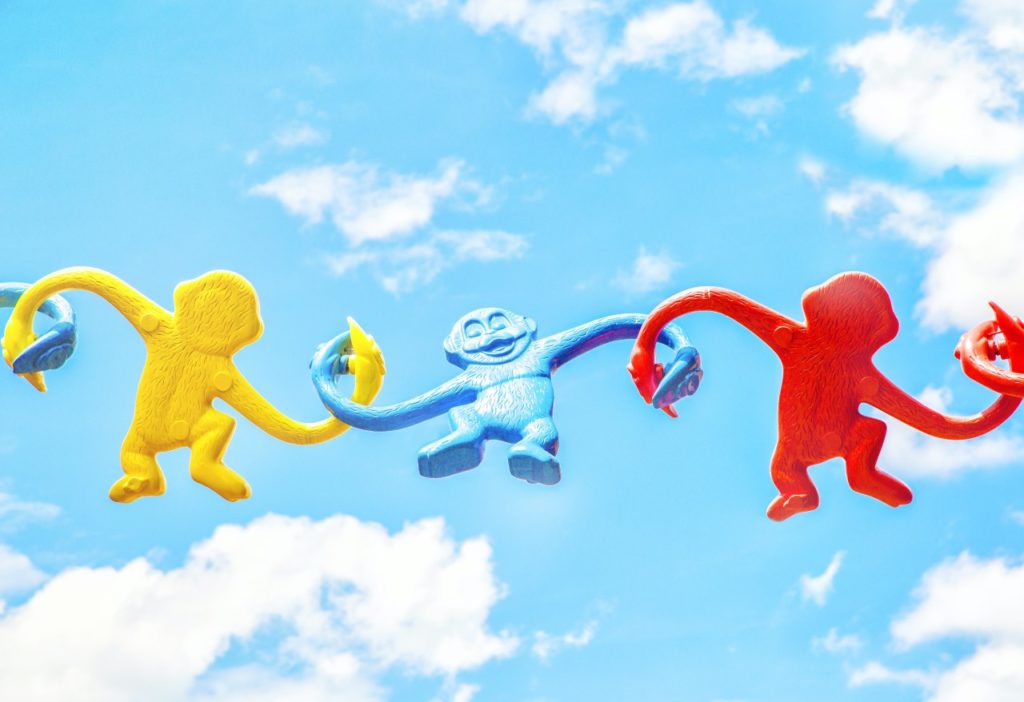
Is Zookeeper Part of Your Job Description?
I had a sign that read, “My Office is Not a Zoo!” mounted by the entrance to my office when I worked for many years in retail buying, merchandising and marketing.
Most people thought this was simply my way of displaying my denial of reality, hoping against hope that I could change the pace and demeanor of my office through the sheer power of positive suggestion. Others thought that it was the epitome of sarcasm because, in the heat of the spring season, a zoo would have been a better, kinder, gentler place to be than in my office.
I think most of you can relate to this … whether you’re a grower or a retailer, when spring hits, it hits with a vengeance and no amount of planning can ever anticipate or consider the myriad critical problems, challenges and opportunities that must be taken care of throughout the day. I genuinely believe that there’s a little bit of a masochist in all of us who deal with live goods; deep down inside, we all get energized and jazzed by the hectic pace and the buzz or rush we get in trying to catch up to (forget about getting ahead of) the curve, making the seemingly impossible possible. Truth be known, I think this is part of the reward of being in this business … we’re all adrenaline junkies!
But back to my sign. There really was a purpose for having this, and it helped set the tone for my team members and established a level of expectation that everyone had to consciously think about when dealing with problems and opportunities, things I affectionately called monkeys.
Moving Monkeys Around
As good managers and leaders, we all want to maintain an open door for our team, cultivating an attitude or even a culture of being approachable. Human nature being what it is, when someone has a problem, especially one that the individual hasn’t dealt with in the past, the path of least resistance is to bump the decision up the line, avoiding the possibility of not just making a bad decision, but any decision at all. And the easiest thing this employee can do is to move the monkey — that problem or decision — onto someone else’s back or to bring the problem into my office and leave it there, forcing me to deal with it, not them. Now, please don’t confuse this with upward delegation, an art form that takes many years to perfect; I’m just referring here to moving problem monkeys around.
Some managers thrive on making all of the decisions themselves, feeling the compulsive need to be “in the loop” on everything that’s going on. But being overly controlling encroaches on your valuable time and inhibits your ability to develop a big-picture outlook — something that at least one person in every organization needs to maintain. If the manager gets bogged down in the decision minutiae, it’s impossible to keep the most important things in perspective — the areas that have the most impact on the business, like managing cash flow and thinking strategically.
And by the manager taking on the responsibility of making, or being involved in making, all of the decisions, we lose the opportunity to develop our team to become independent, thinking, confident and responsible employees. That’s not to say that we want to let our employees run amok, allowing them to make bad decisions for lack of our involvement and guidance. And I’m not suggesting that, as managers and leaders, we abdicate our responsibilities to maintain control of the decision-making process, but instead just approach our responsibility differently. Use these opportunities as teachable moments that can benefit both you and your team members now and for the future!
Owning Your Monkeys
Those words on the sign outside my office were a simple reminder to everyone of some of my key management philosophies. I encouraged my staff to bring their monkeys into my office. But this philosophy discouraged them from leaving these monkeys with me; I was not their zookeeper and they had to take their monkeys back out with them! When the team member brought their problem in, they knew that I expected them to have thought the problem through and come in with at least three possible solutions to solve or resolve their problem or monkey.
Once they explained exactly what their monkey was, we’d discuss their suggested options, weighing the pros and cons of each of them. I’d ask probing questions as we discussed their possible fixes to make sure they had considered all the variables and, as we worked our way through them, most times they (not me) would determine the correct solution from the options they presented. In most instances, they already knew the right answer, but just needed validation of their decision. If none of their proposed options were viable, then together we’d come up with a few more that would solve the problem.
I used this process as a learning moment and an opportunity for team development and it not only built up their decision-making confidence, but a solid thought process foundation that they could use to independently make future decisions when faced with new monkeys. Another major benefit to this process is that the employee now owned the decision, and with that ownership comes commitment and a sense of responsibility for achieving the results of their decision.
Yes, there were some occasions where they needed to leave their monkey in my care because it was a problem that really belonged to me in the first place or was more complex than the employee could reasonably handle, so I temporarily agreed to become the zookeeper for the monkey. But over time and as they gained experience, this became a less frequent occurrence.
And, yes, initially, this process took more time than just making the decision myself and having them implement it, but as my team’s confidence in their decision-making abilities improved, they handled most of the routine decisions themselves because they had developed solid and proven thought process skills, saving me time in the long term.
By following this philosophy, I as a leader now had more time to focus on the strategic and the most critical areas of the business that needed my involvement. And my team had more ownership for their decisions, were more committed, and ultimately were more productive; they had the authority and the confidence to make considered decisions, decisions that weren’t second-guessed because they understood the thought process required to make them.
While deep down I’m an animal lover, the regular care and feeding of a room full of monkeys is not something that is appealing to me; I’d much rather watch them from afar. My office was no longer a zoo; maybe yours doesn’t need to be, either…


















 Videos
Videos





